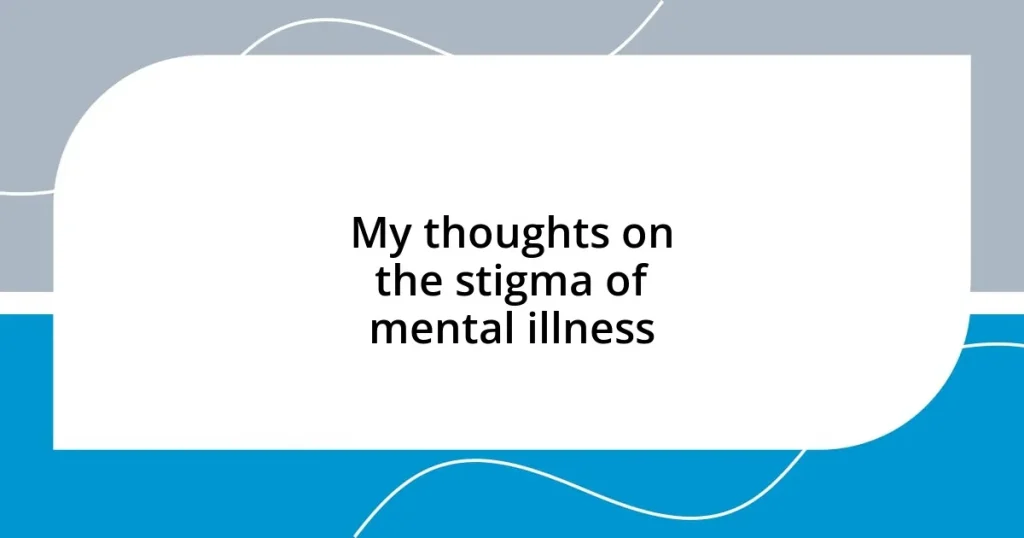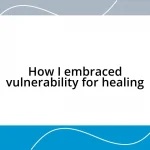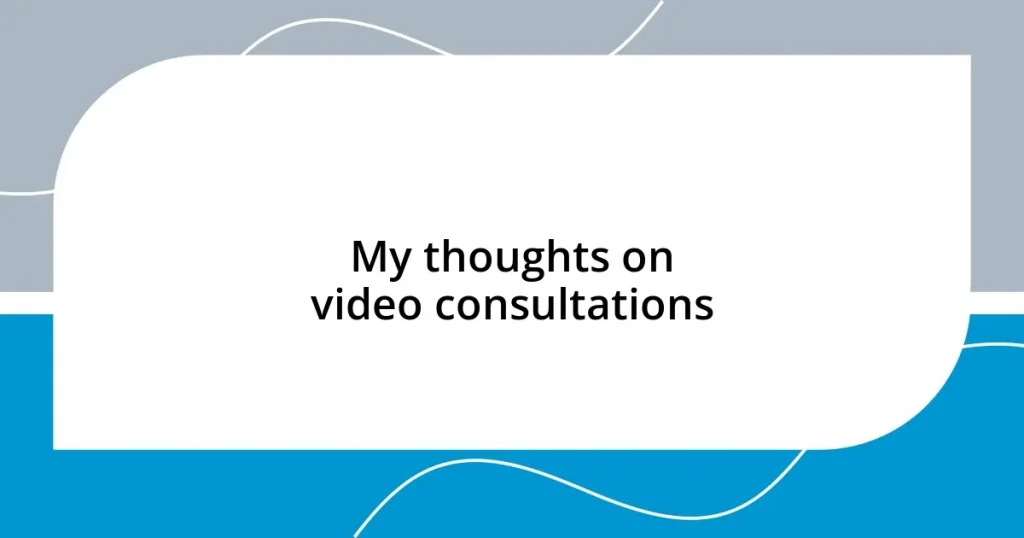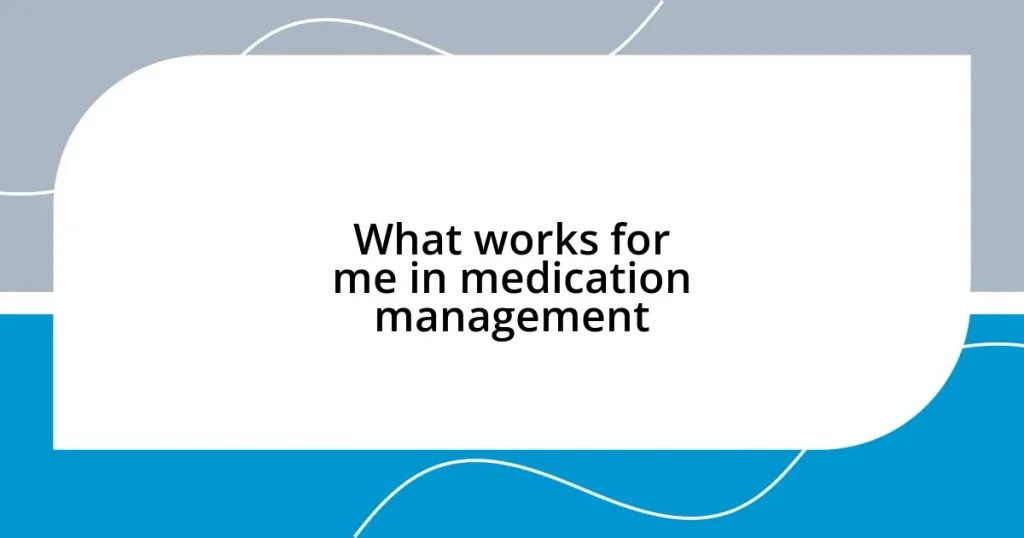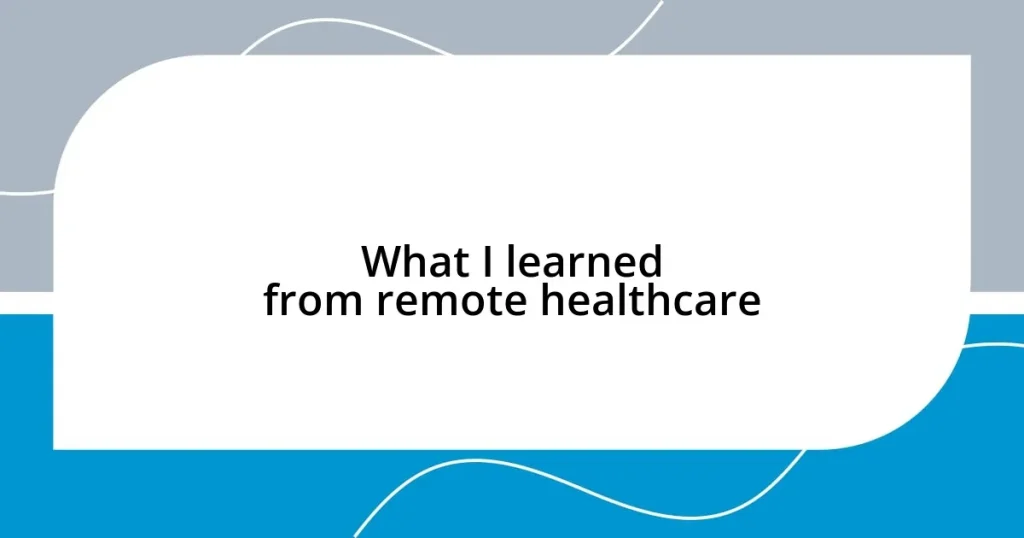Key takeaways:
- Stigma surrounding mental illness is often rooted in fear and misunderstanding, leading to isolation and reluctance to seek help.
- Common misconceptions include the belief that mental illness is a sign of weakness, that it’s rare, and that those affected are dangerous, all of which exacerbate stigma.
- Personal stories of mental health struggles can foster empathy and drive societal change, breaking down barriers to support.
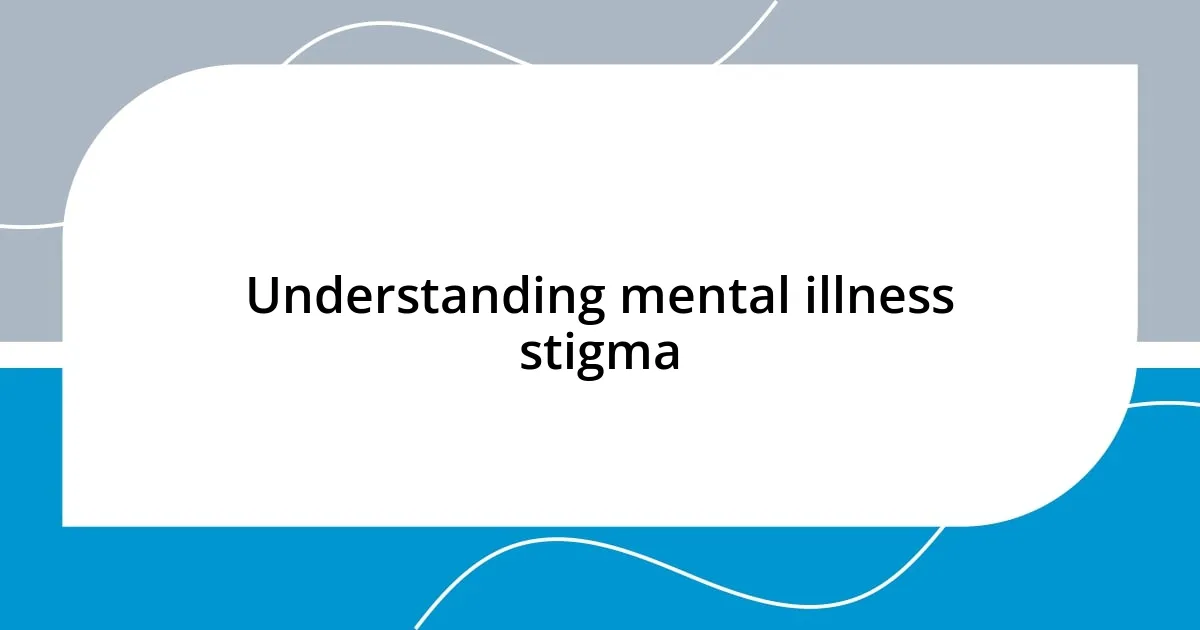
Understanding mental illness stigma
Stigma surrounding mental illness often stems from a lack of understanding and fear of the unknown. I remember a time when a close friend confided in me about their struggles with anxiety. Their hesitation to share was palpable, and it made me realize how deeply ingrained societal misconceptions can leave someone feeling isolated, even among friends.
Often, people with mental health issues are unfairly labeled or judged, which only adds to their burden. When I think about it, have you ever found yourself questioning someone’s capabilities simply because they mentioned their depression? It’s a harsh reality that many face. This judgment creates an environment where individuals feel they must hide their struggles rather than seek help.
Exploring mental illness stigma means confronting our own biases. I’ve had to examine my thoughts and reactions, which has been an eye-opening process. Understanding that mental illness can affect anyone, regardless of background, invites empathy rather than fear, and that shift in perspective can bridge the gap between stigma and support.
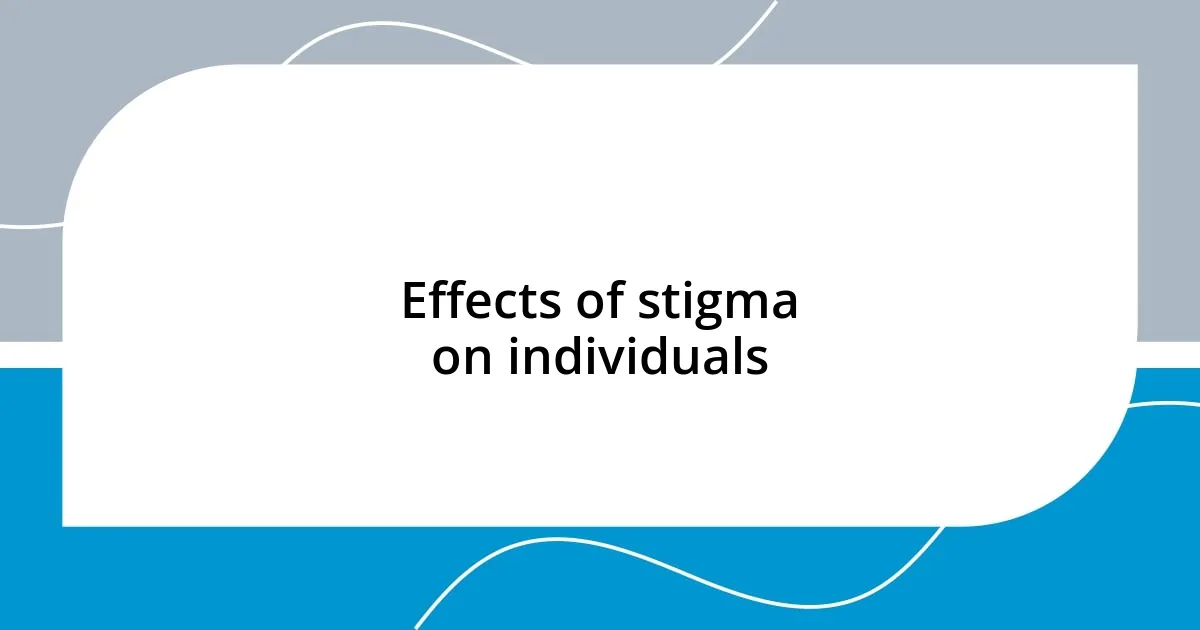
Effects of stigma on individuals
The effects of stigma on individuals dealing with mental illness can be incredibly profound and often debilitating. I recall a moment when a colleague of mine, who was exceptionally talented, began to withdraw after openly discussing his struggles with OCD. His work performance dipped, not because he lacked the ability, but due to the overwhelming weight of feeling misunderstood. This stigma not only exacerbated his mental health challenges but also stripped away his confidence, leading to further isolation.
The impact of stigma manifests in various ways, such as:
- Fear of Seeking Help: Many individuals avoid reaching out for support due to the fear of being labeled.
- Reduced Self-Worth: Constant negative perception can diminish one’s self-esteem.
- Social Isolation: Stigmatized individuals often withdraw from relationships, fearing judgment.
- Discrimination: Stigma can lead to unfair treatment at work or in social settings, making everyday interactions challenging.
- Internalized Shame: The societal views about mental illness can make individuals internalize a sense of shame, deepening their struggles.
Ultimately, the ripple effects of stigma are not just about how others view individuals but also how they begin to see themselves. I’ve witnessed friends grapple with their identities, seeing themselves primarily through the lens of their diagnosis rather than as multi-faceted individuals. This revelation is a powerful reminder of the urgent need for change in our collective mindset.
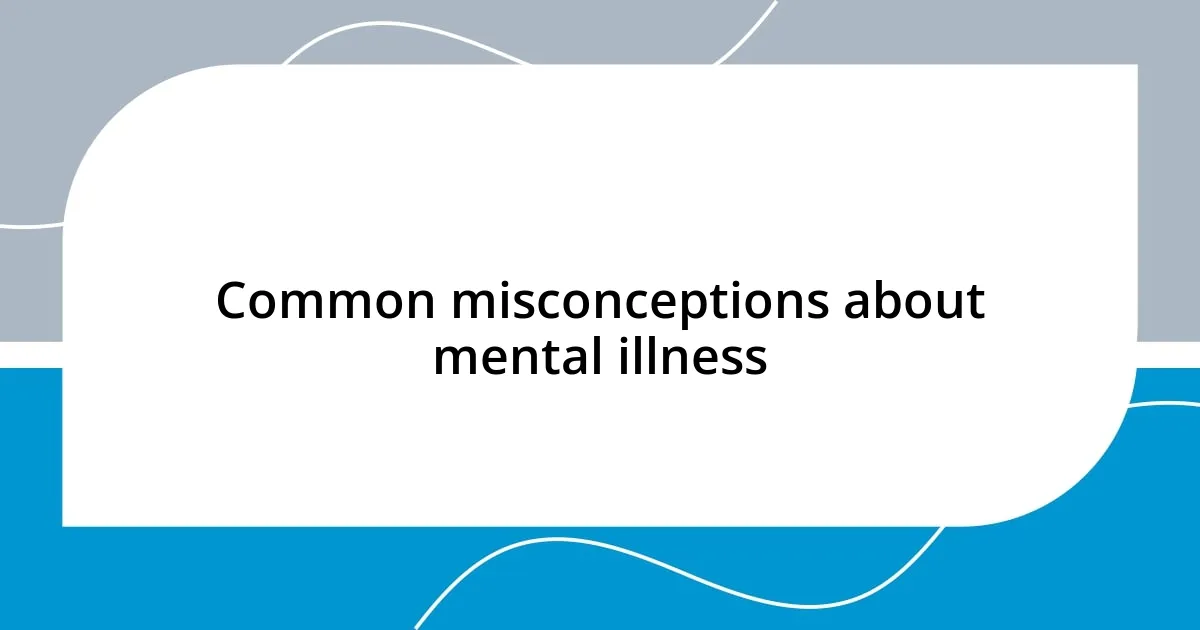
Common misconceptions about mental illness
Misunderstandings about mental illness are all too common, leading to harmful stereotypes that persist in society. For example, many still believe that mental illness is a sign of personal weakness. I remember hearing someone say, “If they really wanted to, they could just get over it.” This kind of thinking ignores the complex interplay of biology, environment, and mental health, which I know all too well from my own experiences. It’s frustrating to see how easily people dismiss the legitimate struggles that come with conditions like depression or anxiety.
Another misconception is that mental illness is rare or confined to certain demographics. In my own life, I’ve encountered various individuals from different backgrounds facing mental health challenges—students, professionals, even family members. This has really opened my eyes to the fact that mental illness doesn’t discriminate; it affects people from all walks of life. When I talk to others about my mental health journey, I often encounter surprise that someone “like me” could experience these issues. It’s a stark reminder that mental illness is much more common than many perceive, affecting approximately one in five adults at some point in their lives.
Moreover, there’s a persistent myth that individuals with mental health issues are dangerous or violent. Speaking from experience, I’ve often found that the opposite is true. Most individuals battling mental illness are more likely to be victims of violence than perpetrators. I remember a friend sharing how this stereotype affected him; he was afraid to speak out for help because he didn’t want to be seen as a threat. This stigma only serves to alienate those in need, pushing them deeper into silence and fear.
| Misconception | Reality |
|---|---|
| Mental illness indicates personal weakness. | It’s a complex interplay of biological and environmental factors. |
| Mental illness is rare. | It affects approximately one in five adults. |
| Those with mental illness are dangerous. | Most are more likely to be victims of violence. |
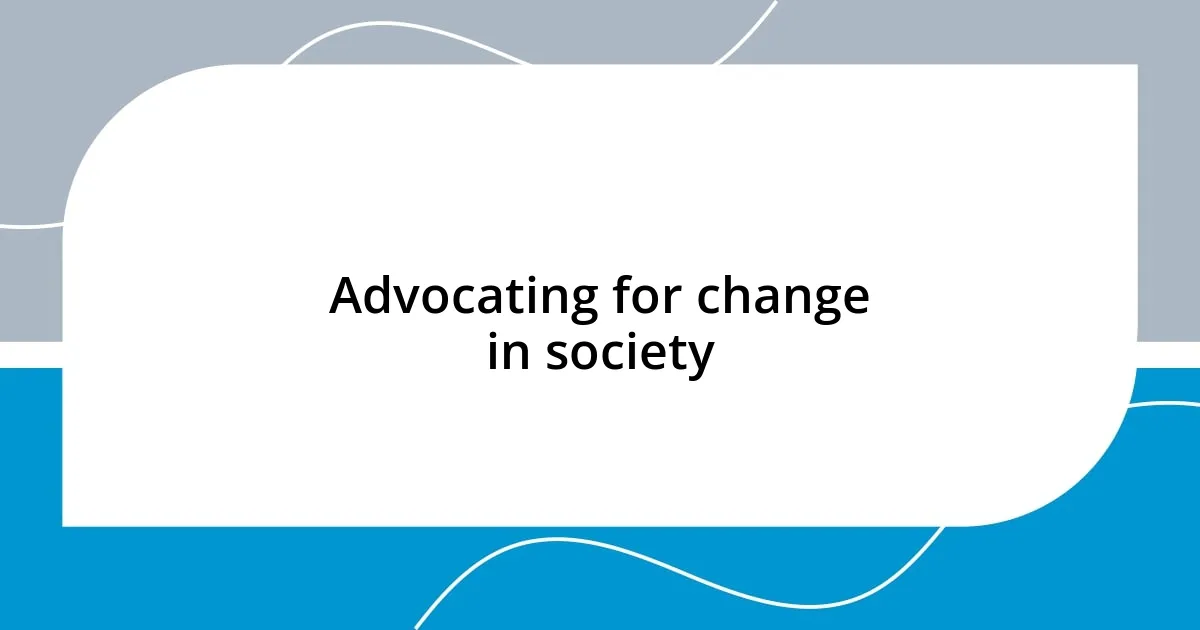
Advocating for change in society
Advocating for change in society requires a united front, and I believe personal stories are an essential part of this movement. When I shared my own struggles with anxiety during a community forum, I was amazed at how many people reached out afterward, voicing similar experiences. It made me realize that our vulnerability can be a powerful catalyst for change; if we are open about our journeys, we can dismantle barriers and build a more empathetic society.
I often wonder, why is it so hard for people to recognize that we all have mental health? Recently, I attended a mental health awareness event, where a young speaker profoundly impacted me. She described how her family initially turned away from her when she divulged her depression. The courage it took for her to stand up and share her story sparked conversations among attendees about breaking down the walls of stigma in our families and communities. This experience served as a reminder that advocating for change starts with each of us.
The more I engage in discussions about mental health, the more I see a shift in perspective within my circle. Small changes, like friends asking more about mental wellness instead of tiptoeing around the topic, make a big difference. I remember one of my closest friends texting me out of the blue, asking, “How are you really doing?” It was a simple question, but it made me feel seen and supported. If everyone could foster that kind of openness and genuine curiosity, we could transform the narrative around mental illness.











